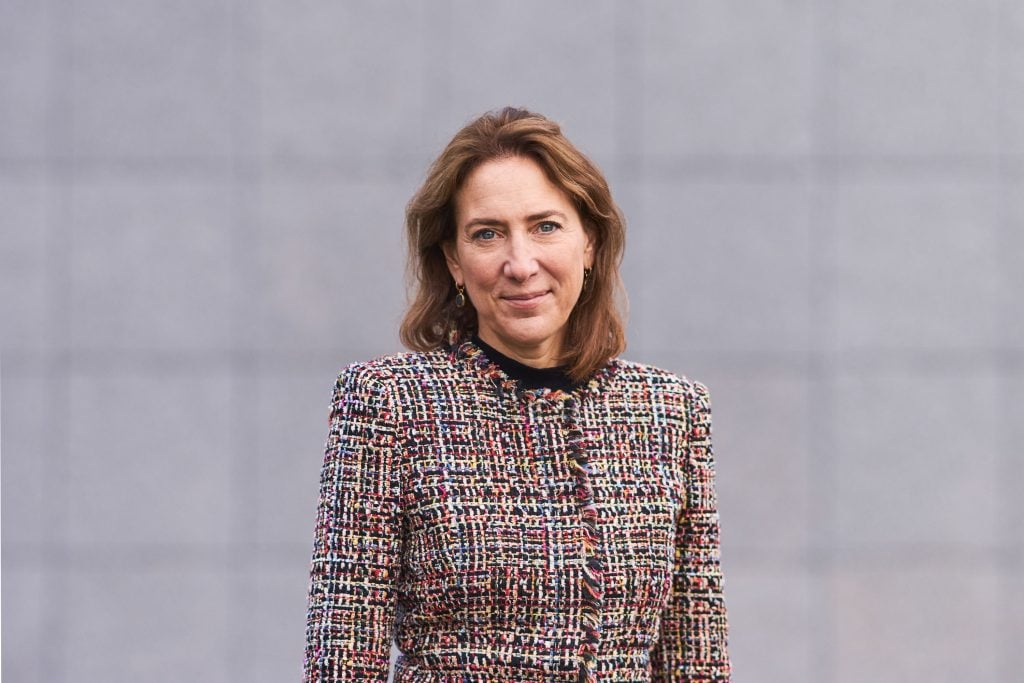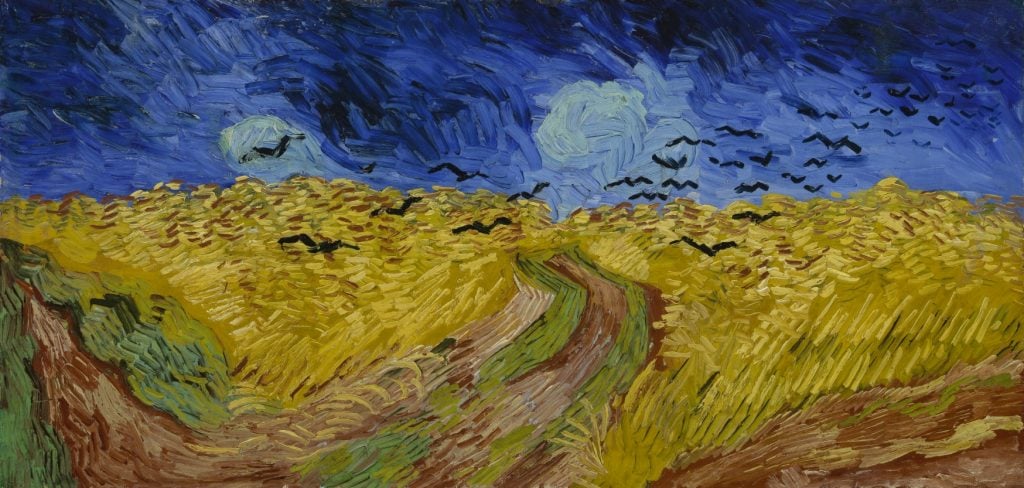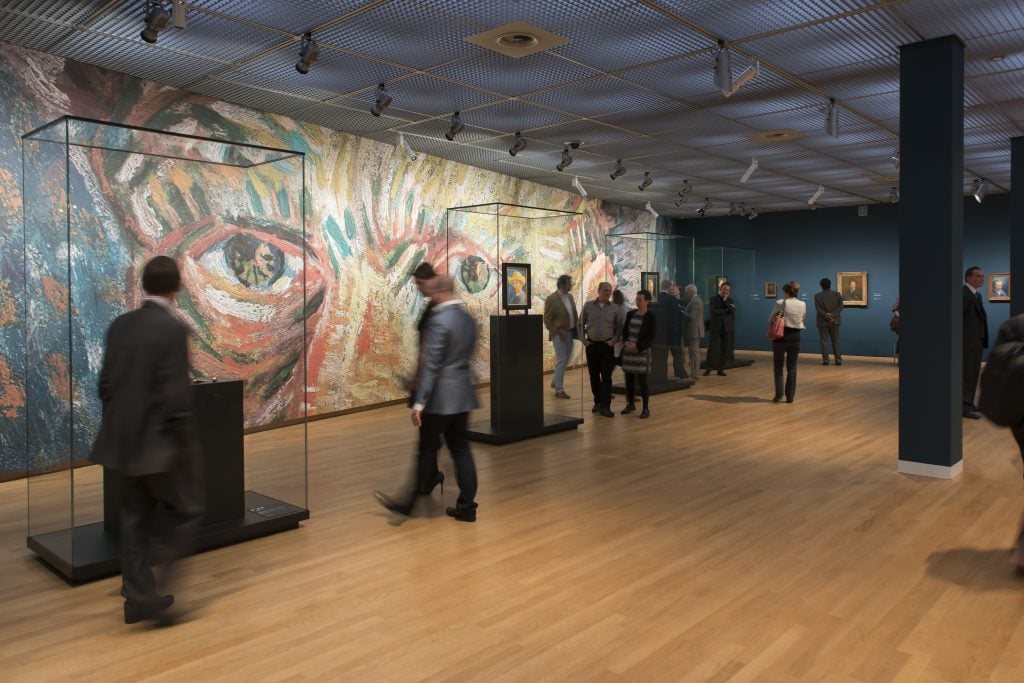People
Emilie Gordenker on Keeping Van Gogh’s Legacy Alive in 2024
The general director of the Van Gogh Museum has her eye on major shows celebrating the namesake artist.

The general director of the Van Gogh Museum has her eye on major shows celebrating the namesake artist.

Holly Black

As general director of the Van Gogh Museum in Amsterdam, Emilie Gordenker is tasked with celebrating the legacy if one of the world’s most recognisable (and undeniably popular) artists. The American-born historian is an expert in Dutch art, and spent 12 years at the Mauritshuis in The Hague, before assuming her new post in the spring of 2020.
Since then she has overseen exhibitions that examine Van Gogh’s legacy on a micro and macro scale, including Vive l’impressionnisme! Masterpieces from Dutch Collections (2024) and Van Gogh in Auvers. His Final Months (2023). She has also had to navigate unprecedented trials, including the long-standing closures associated with the pandemic, and ongoing budget cuts.
Nevertheless, Gordenker remains steadfast in her commitment to thoughtful, critical scholarship which focuses on building a quality experience for the enormous number of visitors who descend on one of Europe’s most visited cities every year.
Here she looks back at 2024 and considers what the future holds in the year ahead.

Vincent van Gogh, Wheatfield with Crows (1890), Van Gogh Museum collection (Vincent van Gogh Foundation). Photo courtesy of the Van Gogh Museum.
What moment or project stands out as a personal highlight of 2024?
It might sound like a technical, business-as-usual matter, but according to the Dutch Heritage laws, our museum is assessed once every four years by an independent panel. The assessment report, which appeared over the summer of this year, was extremely positive and even called the Van Gogh Museum a “phenomenon”.
More importantly it confirmed that we are on the right course with the change in strategic direction that I led starting in 2020, whereby we are privileging quality over quantity when it comes to visitor numbers, exhibitions and other activities. The report gave me and my colleagues a huge boost.
What was the best show you saw in Amsterdam in 2024?
At the risk of sounding boastful, our own exhibition “Matthew Wong/Vincent Van Gogh: Painting as a last resort” (1 March–1 September). This was the first extensive overview of the artist’s work in Europe, and one that touched and surprised many visitors.
Tell us about the best show you saw abroad in 2024.
“Van Gogh and the Stars” at the Fondation Vincent van Gogh in Arles. Curated by Jean de Loisy and Bice Curiger, the exhibition shed new light on the erudite work and research carried out by Vincent van Gogh throughout his life, driven by his inner vision, his torments, his acute sense of observation, but also by his environment. It was an extraordinarily creative and beautiful show, which taught me a lot.

Inside the Van Gogh Museum. photo: Jan Kees Steenman.
What are you looking forward to most in 2025?
There can be no other choice than “Kiefer: Sag mir wo die Blumen sind“, the first ever collaboration between the Van Gogh Museum and the Stedelijk Museum Amsterdam. This major exhibition of Anselm Kiefer’s work will be one show in two museums, and is conceived as a diptych. The Van Gogh Museum will highlight Kiefer’s lifelong fascination with Vincent van Gogh; the Stedelijk will show is longstanding relationship with Dutch collectors and museums, particularly the Stedelijk.
If you could see one change in the art world next year, what would it be?
Almost every museum I know of, no matter how large the endowment or subsidy, is struggling to cover basic operating costs. Money can often be found for visible activities, such as acquisitions, educational activities or building projects, but it’s much more difficult to cover costs for fundamental things, such as the maintenance of buildings or basic research into the collection.
As I often say, the most frequently asked question in most museums is ‘where is the toilet (or bathroom)’? But that’s also the most difficult thing for which to find money—who wants a named toilet? In this time of political (and quite possibly economic) instability my wish would be to find a way to convince donors and governments to provide un-earmarked funds so that we can safeguard our museums for the long term.
What is the one piece of advice you would give yourself at this time last year?
Stay the course!
Who is the art professional you have your eye on for 2025, and why?
Nicholas Cullinan, the new director of the British Museum. The world is waiting to see what the BM will do with relation to restitution and other major issues that he will have to work through.